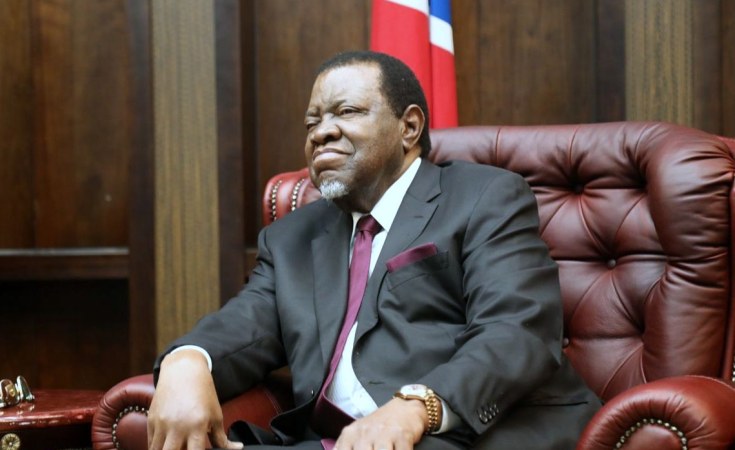Swapo legislator Jerry Ekandjo's private member's bill, which deals with changes to the Marriage Act, including the prohibition of same-sex marriages and any acknowledgment of such unions in Namibia, has sailed in both chambers of Parliament.
Ekandjo wants a precise definition of the term spouse that aligns with Namibia's existing definition of marriage.
In the Marriage Amendment Bill (2023), Section 1 (b) the definition of spouse states that the term spouse is "wherever it occurs in this and any other legislation means a partner in a marriage between persons of the opposite sex."
In the National Council, Swapo's Andreas Amundjindi proposed the definition of spouse to mean "a person, being one half of a legal union between a genetically born man and a genetically born woman of the opposite sex of that person."
The bill, with its amendment, was tabled yesterday with no objection in the National Assembly, and it will soon be presented to President Hage Geingob for either approval or rejection.
Ekandjo's bill comes on the heels of the Supreme Court's ruling to recognise same-sex marriages solemnised outside Namibia.
Ekandjo cited Article 81 of the Constitution, which grants Parliament the power to challenge Supreme Court decisions.
He argued that the Supreme Court's ruling on the acquisition of Namibian citizenship through marriage overlooked Article 14 of the Constitution as well as the Marriage Act.
Contradictions
This year, Cabinet approved the draft Marriage Bill that was proposed by the ministry of home affairs.
The bill, that is yet to be tabled in the National Assembly by the line ministry, is in contradiction with Ekandjo's private member's bill and will seek to replace the current marriage law.
In the previous interview with this publication, former deputy minister of home affairs, Daniel Kashikola stated that the ministry holds a differing perspective from Ekandjo's interpretation of marriage, deeming it "defective and confined to genetic factors".
"The definition posits marriage as a contract solely between a genetically born man and a woman... without further elaboration," he said.
He emphasised that confining the legal concept to genetics could lead to complications, highlighting the existence of individuals born with dual genitalia.
"This raises the question of how such cases would be addressed," Kashikola had pointed out.
In addition, he said, Ekandjo's bill is also limited to civil marriage, while there are customary marriages recognised by the constitution under the law.
"So, you cannot limit us to civil marriages," he observed. Within the proposed legislation, a definition of marriage is embedded as: "(a) Marriage is a contractual agreement entered into between a man and a woman, in accordance with the legal frameworks governing civil marriage in Namibia, and (b) Marriage refers to a contractual union between a man and a woman, in accordance with the customary marriage practices of a community in Namibia, excluding same-sex marriage."
Kashikola elaborated, saying: "Determining one's gender as male or female involves a medical evaluation that is founded on medical reasoning. It is crucial that this determination holds medical validity. One cannot go to America and come back wanting to be a woman while they were a man."
In July, President Hage Geingob hinted on his take on the same-sex marriage.
During a courtesy call by Swapo National Council members at State House, Geingob said marriage in Namibia is between a man and a woman.
"Already before you were born, we defined that marriage is between a man and a woman," said Geingob.
He believes that the private member's bill approach was the appropriate way to address the matter.
However, at that time, he hastened to say lawmakers must be cautious in executing their duties.
"We have to be careful," he warned.


